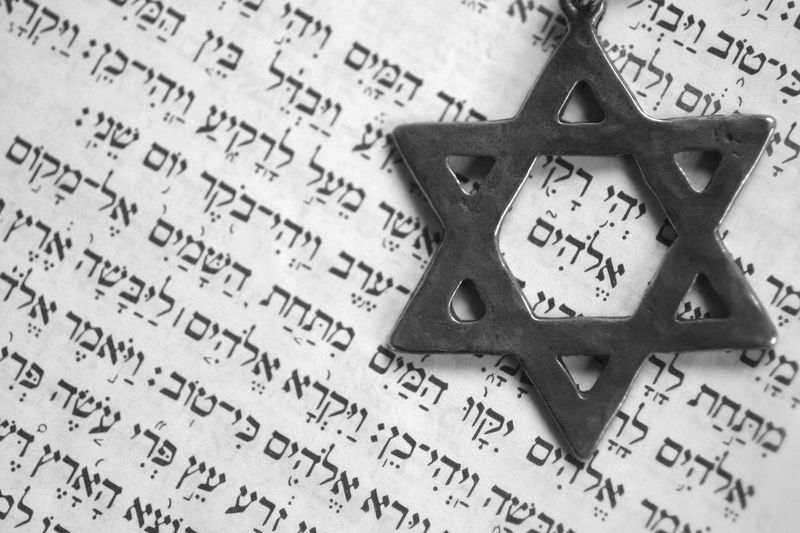
The story of Pinchas begins at the end of last week’s Parasha. In that Parasha, Balak realized that B’nei Yisrael could not be cursed, not even by the great prophet Bilaam. Instead, Hazal tell us, Bilaam advised Balak to work on a different plan. Bilaam knew that sexual morality is the foundation of B’nei Yisrael’s holiness and that Hashem does not tolerate immorality. So Bilaam, along with Balak, both decided to entice the Israelite men to fall into immorality.
According to Hazal, the women would invite the men into their tents to purchase merchandise and would give them food and drink until they were filled with desire for the women. The women would then produce their Baal-Peor idols and tell the men that before they could have them, they must worship the idols in degrading ways.
When Zimri, the leader of the tribe of Shimon, saw what was happening and how these men were falling into Avodah Zarah, he decided that it was preferable to take the girls, as that would be a lesser sin than idolatry. Zimri's intentions might have been noble, but we know that two wrongs don't make a right! We don't violate the Torah and we don't bring the bar down on our religion even if we think we're protecting the Torah. For example, the Reform Movement allows Jews to drive on Shabbat in order to go to shul; this encourages them to go to shul, but goes against the Torah.
Pasuk 7-8 states: "When Phinehas son of Eleazar, son of Aaron the priest, saw it [that Zimri had brought a Midianite woman into his family while they were weeping at the entrance of the test of meeting], he got up and left the congregation. Taking a spear in his hand, he went after the Israelite man [Zimri] into the tent, and pierced the two of them, the Israelite and the woman, through the stomach. So the plague was stopped among the people of Israel. Nevertheless those that died by the plague were twenty-four thousand.”
Now this week’s Parasha, which is named after Pinchas, who acted L'shem Shamayim, begins with Pasuk 10 as follows: "Phinehas son of Elazar son of Aharon the Kohen turned back the wrath of Hashem from upon B'nei Yisrael, when he zealously avenged Hashem's vengeance among them, so Hashem did not consume B'nei Yisrael in His vengeance".
Pinchas was a "Kanai", which means that he was zealous to protect the honor of Hashem! Our Rabbis tell us that before Pinhas killed Zimri, he asked Moshe the Halacha to confirm what he should do, and when Moshe agreed, Pinhas immediately took action and killed both Zimri and the Midianite woman, whose name was Kozbi, with one spear.
So we see from the previous story that because Pinchas defended the honor of Hashem by killing Zimri and the Midianite princess, he was granted a covenant of Shalom! Sforno explains that because of what Pinhas did L'shem Shamayim, he lived a very long life and after 400 years his Neshamah went into Eliyahu Hanavi which is everlasting until today!
Sforno goes on to explain that "All deterioration that happens to the body is because of conflict of the opposites". In other words, all disease and weakening with age only occurs because of internal conflicts! So if we can find a way to live in peace with ourselves and eliminate our internal strife and daily worries and stresses by realizing that everything we have is from Hashem, we too will live longer. We must know that our talents, our Parnasah, our health and our families, and all that we have, are from Hashem. Our job is to just realize that Hashem is in control and then we will be on our way to know that there's nothing for us to worry about!
Pinchas, according to the Torah, acted in a way that's called L'shem Shamayim (for the sake of Heaven), but that's a very difficult level to achieve. Rabbi Diamond teaches us that there is no one living in our time that can say they acted one hundred percent L'shem Shamayim. As great as a person can be today, we can never reach the level of Pinchas. There will always be some part of us that will be performing the act for our own Kavod (honor) and that is not considered to be a complete L'shem Shamayim. So we have to always keep that in mind when we think we're being zealous.
In Pasuk 12 the Torah states: "Lachen emor heneni noten lo et bereiti shalom". The 'vav' in the word shalom in that Pasuk is split. The Halacha stresses that letters in the Torah must be written in one complete stroke, and if they are faded or if any part is missing, the work is invalid. But in this one Pasuk, in the word shalom, the ‘vav’ must be written with a break in the line.
Rabbi Frand says regarding this split 'vav' that Pinchas did not look to compromise with Zimri and Kozbi in the name of peace. Pinchas knew that there's a point at which a person must draw the line and say… "Here and no further! " Now we can understand why the 'vav' in the word Shalom is split: of course Shalom is important, but there are two kinds of Shalom. The 'vav' can sometimes be a 'vav' of inclusion (as in the English word "and") but sometimes the 'vav' can be used for distinction, a 'vav' of division. When pursuing the cause of Shalom, a person must remember that there are two 'vavs'.
Sometimes the "vav Hachibur", or inclusion, is appropriate and he should say, "Yes, it is worthwhile to compromise". At other times the "vav of Chiluk," or separation, is appropriate. Shalom can require putting two people back together but at other times for the best of both parties involved in a marriage or business partnership it may be better to split to reach Shalom. There's a very fine line and one must consult with his Rabbi to know the difference.
Throughout the description of creation, the Torah concludes each day with the comment, "And G-d saw that it was good." Chazal notes, however, that at the conclusion of the second day of creation, when G-d split the waters (1:6) between the waters above and below "Rakiah"-the firmament, the Torah omits that comment. The Rabbi's explain that the reason for this omission is that the splitting of the waters marked the first time in history that there was division (Machloket). Prior to this act, there was Unity in the world; now there was Division. Regarding "Machloket" we can never say "It was good" (1:18).
Rav Shlomo Breuer resolves this contradiction with a beautiful insight: He quotes the verse “…Truth and Peace you shall love” [Zechariah 8:19]. We must love Peace. However, there is something that comes before Peace…and that is Truth. As much as we emphasize the importance of Shalom [peace], in the final analysis Shalom is important up to a certain point — and that is the point of Emmet [truth]. A person should not make Shalom if making Shalom is going to compromise the Emmet, by causing him to throw out principles and values that he knows to be Emmet.
The Mishnah [Uktzin 3:12] states “G-d did not find any vessel to hold Blessing, other than the vessel of Peace”. Shalom is the receptacle; it is the vessel that holds everything; but a person sometimes has to look and ask himself, “what am I left holding?” If I compromise everything in the name of Shalom, then what is this vessel of Shalom left holding? It is holding nothing. Yes, Peace, but remember the sequence of the verse: Truth and (then) Peace you shall love.
Now we can understand the difference between the Separation between “the waters and the waters” (the Rakiah) and the Separation between “Light and Darkness”. In the case of the Rakiah, there was no real difference between the waters above and the waters below. The division was merely for the sake of division. While the division was necessary for the welfare of the world, inherently it had no purpose. Therefore, the verse does not say “Ki Tov”.
However, separation between the Light and the Darkness — between something that represents good and something that represents bad; between something that is right and something that is wrong — that is a division about which we can indeed say “Ki Tov”.
May we all learn the difference between these two types of shalom and stand up for the truth of Torah so that we may emulate Aharon who was the epitome of 'Ohev Shalom Verodef Shalom' Amen!
Parasha perspective By Jack E. Rahmey from the teachings and guidance of Rabbi Amram Sananes.








